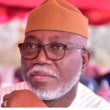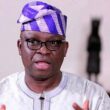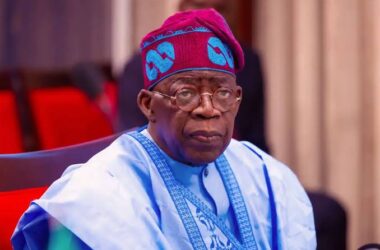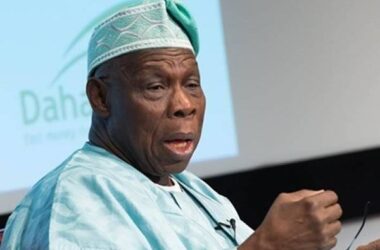Dr. Yemi Farounbi, a veteran journalist and diplomat, has expressed dissatisfaction with Nigeria’s current state, pointing at former heads of state Olusegun Obasanjo, Ibrahim Babangida (IBB), and Abdulsalami Abubakar as key characters in the country’s ongoing sociopolitical challenges. Farounbi, who turns 80 today, expressed deep concern about the state of the nation, particularly under the leadership of President Bola Tinubu, whose recent policies he fears are deviating from the path of progress, during an interview with Inside Sources host Laolu Akande on Channels TV on Friday.
Reflecting on the aspirations he shared with the late Chief Bola Ige, former Oyo state Governor and Attorney-General of the Federation, Amb. Farounbi lamented, “It’s sad. We had a lot of hopes for Nigeria. We envisioned a country that would be the greatest on the African continent, both politically and economically.” He emphasized a dream of a nation where citizens would enjoy access to affordable education, gainful employment, and free medical services. “We believed that accessing essential health services and medications would not be a daunting task. Our vision included halting the drift from rural to urban areas, ensuring that every community had reliable electricity, quality education, and adequate health facilities,” he explained.
Despite this hopeful vision, Farounbi expressed frustration that these ideals remain unfulfilled, remarking, “Unfortunately, it’s still our dream.” He criticized the socio-economic conditions that have forced many to flee their rural homes in search of better opportunities in urban centers. “We thought about a concept where each community would operate at optimum levels, ensuring that all amenities available in Lagos or Abuja would also be accessible in smaller towns. There should be no need for individuals to leave their homes in search of a better life,” he added.
When questioned about the factors that led to the degradation of this vision, Farounbi who is Nigeria’s former ambassador to the Philippines, said “The 16 years interregnum caused by the military from 1993 to 1999. That altered the composition of the society itself. It altered the approach to politics. It started the alter monetization of the political system. It turned politics from the leaders being the representatives of the people to become those who have the largest war-chest or bank account.”
He also discussed the ideological vacuum that has plagued Nigerian politics since the return to democracy. “Since 1999, there has not been a single political party rooted in any ideology. Parties like the PDP and APC emerged from a desire to overthrow or replace the existing power structures, not based on ideological principles,” he stated. “The PDP was united by the singular goal of ending military rule. Similarly, the APC’s formation was rooted in a collective frustration with the PDP rather than a vision for a better Nigeria.”
Farounbi did not hold back in his criticism of retired generals Babangida, Obasanjo, and Abubakar, claiming, “In various degrees, they are. They interfered with the decision-making system. They reduced the legislature to nothingness. In the military regime, you don’t have legislative capacity. The legislature is combined with the executive in the military ruler. For 28 years, Nigeria has no experience in legistive management. And you can see that in the incompetence displayed most times by the National Assembly. The National Assembly or the state House of Assembly see the President or Governor as a Kabiyesi [traditional ruler] that cannot be contradicted.”
He noted that the APC led by President Bola Tinubu cannot be called a “progressive movement”. He said “progressiveness is not static. It keeps on changing from time to time. Progressive change depending on the status of the society.
“The Progressive Movement produced President [Muhammadu] Buhari. The Progressive Movement produced President Tinubu. And President Tinubu promised to continue from where President Buhari left off. One thing that I have always known in the relationship or alliance between the North and South-West is a measure of stability but stability doesn’t mean you will get progress,” the veteran journalist said.
He called for a return to a system where the legislature operates independently and effectively, allowing for checks and balances in governance. Amb. Farounbi’s reflections resonate with many Nigerians who share his vision for a more equitable and prosperous nation.










